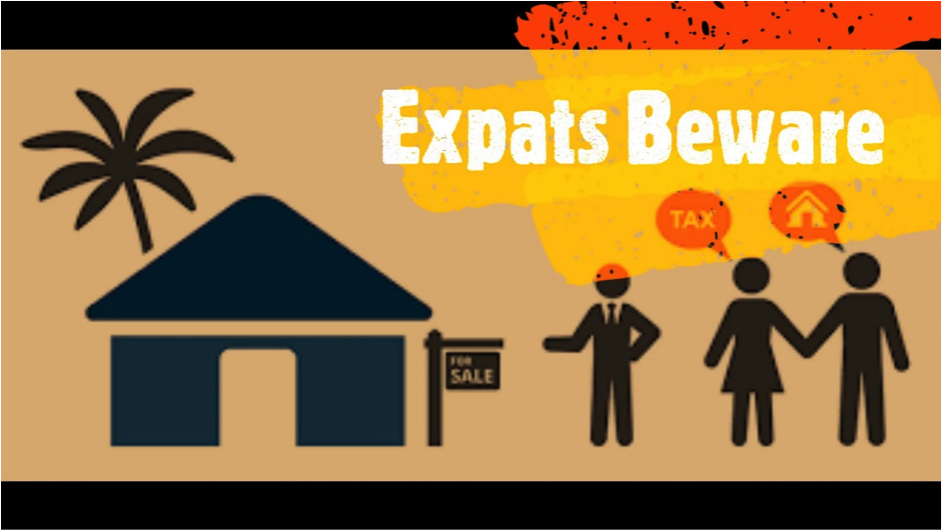
Last Updated: 28th January 2025
Expats Beware the Australian Government is After Your Main Residence Exemption Again!
The bill to remove the main residence exemption for expats made its way through both houses in the final days of the 2019 parliament. It is a little tamer than the 2017 version but can still apply retrospectively to destroy your main residence exemption even for the time you were living in Australia.
The Basic Situation:
If you are an Expat (a non-resident of Australia for tax purposes) when you sell your Australian home, then you are not entitled to the main residence exemption on that home for the whole time you owned it. Think about the tax on a Sydney property purchased 30 years ago. Just because you sold it after living overseas for a couple of years.
There is one carve out, that is, if you have been an Expat for less than 6 years and you sell the property because of a “life event”
What is a “Life Event”?
Your or an immediate family members’ death
Terminal illness of yourself or immediate family members
Marriage Breakdown
But don’t forget this has to be combined with the fact you have been an Expat for less than 6 years.
Transitional Rules:
If you sell a property before 30th June, 2020 then the new rules will not apply to that sale as long as you did not purchase that property after 9th May, 2017.
The Traps:
Can’t Change Your Mind – Basically once you leave the country you cannot sell that property without dire tax consequences. It is all just about where you are a resident for tax purposes when you sell. You could have lived in the house for 30 years then go overseas for work and then after 8 years there feel that is really home, your children have settled there so you sell your Australian home.
Can’t Extend Your Stay Beyond 6 years – You are overseas and didn’t sell your property in Australia because you thought you would be back within the 6 years and figured you had the “life event” coverage to protect your assets in the event of your death. You want to stay for another year or more but still have your house in Australia that was covered by your main residence exemption for decades before you left. You can’t sell it now while you are a non resident (even though less than 6 years) and get any of that main residence exemption unless there is a “life event”. Yet if a life event happens after the 6 years is up ie you die then your estate still loses the main residence exemption for the whole time you owned the property. If you die while living overseas and the 6 years has passed even though you may have dependent children, Australia is going to tax all the capital gain on your home from the day you bought it and with no 50% CGT discount for the period you lived overseas. The amount of tax paid will mean your family have no chance of being able to afford to buy a house in Australia with the net proceeds. The way the law works is even if the house is not sold and your family return to it, your estate is deemed to have sold it to your beneficiary because they were a non resident at the time you died. Note this will not apply if you owned the house as a joint tenant.
Lack of Records – If you have not kept good records you will be taxed on more than the true capital gain. Without records your cost base will not be increased by the cost of holding and improving the property. And of course you haven’t kept records while you lived there because you thought it was covered by your main residence exemption. There is no reset to market value at the time you first rent the property out. For guidance and a spreadsheet on the records you need to keep go to https://www.bantacs.com.au/
Non Resident Tax Rates – If you are a non resident when you sell then the capital gain is going to be taxed at non resident tax rates which means you start the tax scales on the assumption that you have already earned $37,000 ie no tax free threshold and other concessional rates. Worse still no 50% CGT discount for the time you were an Expat.
Being In Australia When You Sell is not Enough – You need to be resident of Australia for tax purposes when you sell. That is you need to come back to Australia and live and work here. Not just holiday.
What to do Now:
Of course, the catch is it takes time for properties to sell. If you are currently an Expat you need to consider whether you should sell before the 30th June 2020 deadline. You have to ask yourself, other than in the case of a “life event” would you be likely to sell your home while you are still an Expat? If that is likely and you have held it for a number of years with good capital growth, you really need to sell it now.
Soapbox:
This legislation was intended to assist with housing affordability by making more houses available for Australian residents. But it does the opposite. Non-residents can’t afford to sell a house while they are overseas so they will hold onto it. It is a cash grab by the government disguised as benevolence to first home buyers. If they made it that non-residents only lost the main residence exemption for the period they were living overseas then it would not be such a big financial disincentive to sell their home. But that would mean less government revenue extracted from Australians that don’t usually vote.
If you don’t believe me that our legislators could be so inept have a read of this https://parlinfo.aph.gov.au/parlInfo/search/display/display.w3p;query=Id%3A”legislation%2Fbills%2Fr6439_first-reps%2F0000″;rec=0
 Julia's Blog
Julia's Blog